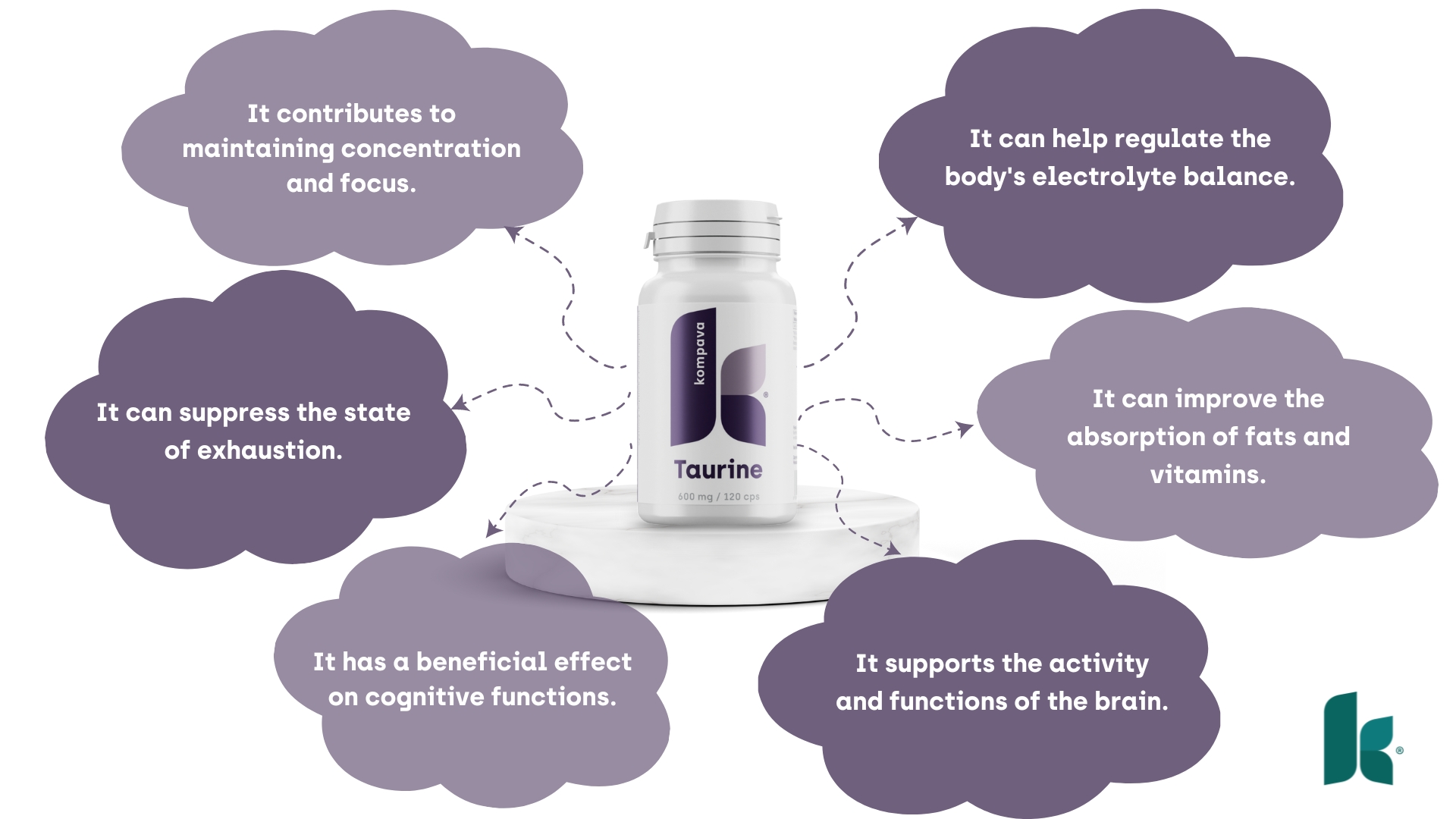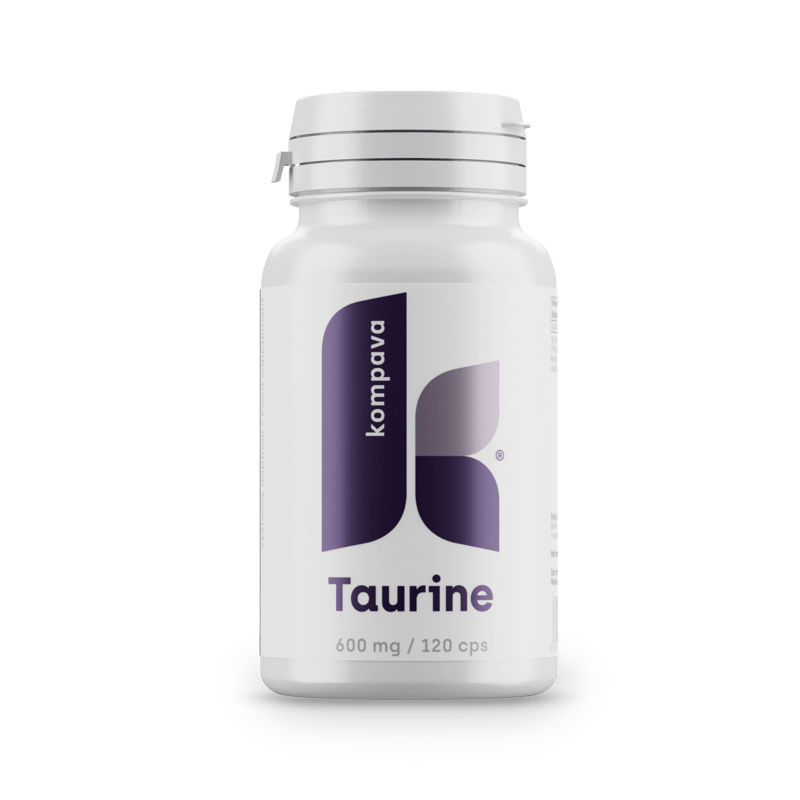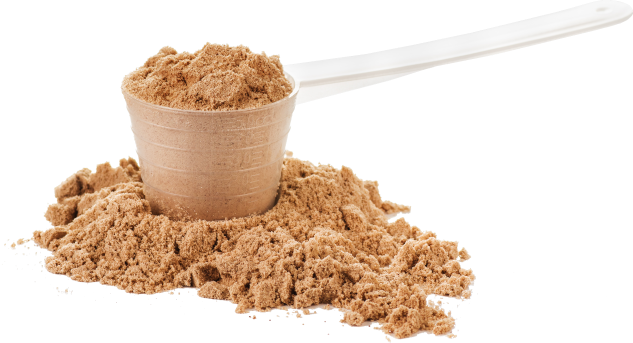
Taurine is a semi-essential amino acid, which means that the body can make some of it, but not in sufficient quantities. After glutamine, it is the most abundant amino acid in the body. It is most abundant in skeletal muscle, cardiac muscle, and brain. The highest concentration of taurine is in the heart.
The production of taurine decreases with age and also under certain conditions, e.g. in stressful situations or during intense and long-lasting physical performance.
Taurine has a positive effect on suppressing fatigue in drivers, maintaining concentration in demanding work, contributing to the improvement of mental resistance and tolerance to stress. At the same time, it contributes to the improvement of the absorption of fats and vitamins and the support of regeneration after hard training. Taking taurine can contribute to improving the activity and function of the brain even in old age. It has a beneficial effect on the sensitivity of cells to insulin, which helps move glucose from the blood into the cells.

Taurine contributes to the regulation of calcium levels in muscle cells. It can reduce fatigue and improve endurance during physical activity, with studies suggesting that taurine supplementation can improve performance in aerobic activities. It has antioxidant properties that protect muscle cells from damage caused by intense exercise and oxidative stress. Taurine can also speed up recovery after intense exercise by reducing muscle damage. It is involved in the digestion and metabolism of fats, which can optimize energy use during exercise. In addition, it can help regulate the body's electrolyte balance, which can improve hydration and thus performance during exercise.
Taurine contains:
- Taurine
A semi-essential sulfur amino acid that the body can synthesize from methionine and cysteine with the participation of vitamin B6.










